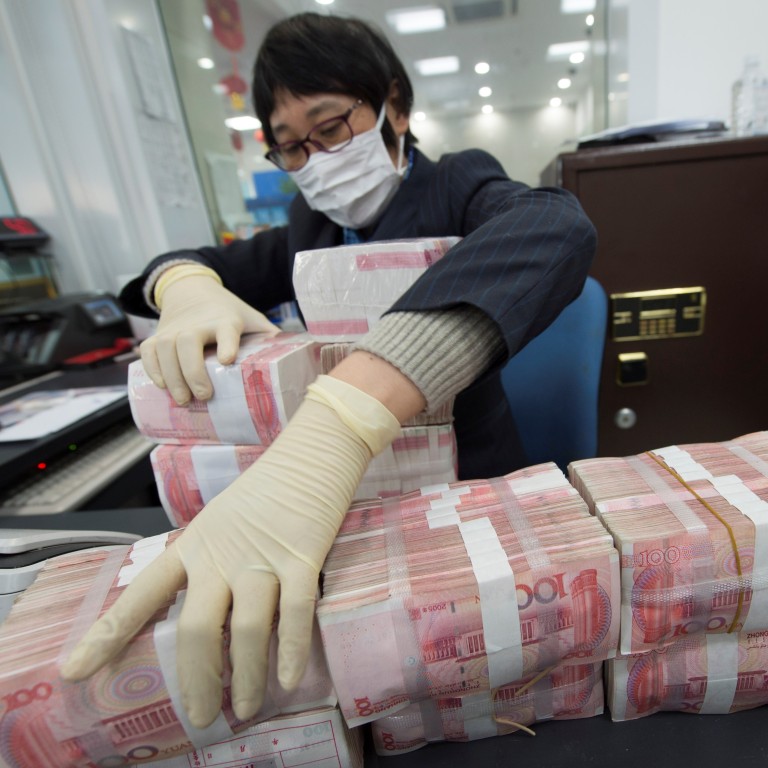
China’s rate cuts in response to coronavirus ‘too marginal’ to help economy, analyst says
- The People’s Bank of China will lower the seven-day reverse repo rate to 2.40 per cent from 2.50 per cent, and cutting the 14-day tenor to 2.55 per cent from 2.65 per cent
- On Monday, the central bank also injected a total of 1.2 trillion yuan (US$173 billion) into money markets through reverse bond repurchase agreements
China’s central bank lowered the interest rates on reverse repurchase agreements on Monday, but the move is “too marginal” to boost economic activity in the wake of the coronavirus outbreak, according to an economist.
The People’s Bank of China (PBOC) said on its website that it was lowering the seven-day reverse repo rate to 2.40 per cent from 2.50 per cent, and cutting the 14-day tenor to 2.55 per cent from 2.65 per cent previously.
Markets had widely expected the liquidity move, but most analysts thought rate cuts might follow later once the economic impact was more clear.
“The People’s Bank has lowered the rates it charges banks for short-run liquidity. Given the mounting toll of the coronavirus outbreak, we expect more cuts in the coming months,” said Julian Evans-Pritchard, senior China economist at Capital Economics.
“This is the second reduction to these rates this easing cycle. The first was a five basis point cut last quarter. The move is likely to be followed by cuts to the rates on the PBOC’s other lending facilities, which often move in tandem.
With business and consumer confidence in the doldrums and appetite for borrowing weak, the rate cut will probably fail to lift credit growth much at all
“While this will take some pressure off of banks and borrowers, the rate cuts are too marginal to provide a substantial offset to the drag on economic activity from the coronavirus outbreak. Indeed, with business and consumer confidence in the doldrums and appetite for borrowing weak, the rate cut will probably fail to lift credit growth much at all.
“The upshot is that further loosening seems likely in the coming weeks unless there is a rapid improvement in the coronavirus situation.
“We were already on the dovish side of consensus prior to the outbreak, with a forecasts for 50 basis points of PBOC rate cuts this year. We wouldn’t be surprised if the PBOC now lowers rates even more aggressively than that. At the very least, policy easing is likely to be heavily front loaded this year.”
According to Xinhua News Agency, the PBOC said the move was aimed at offsetting the impact of reverse repos maturing and concentrated maturing of financial market funds, while also keeping liquidity in the banking system at a reasonably sufficient level during the epidemic control period.
According to their statement, the PBOC will continue to pay close attention to the liquidity situation and maintain macro liquidity at a reasonably ample level.
A reverse repo is a process in which the central bank purchases securities from commercial banks through bidding, with an agreement to sell them back in the future.

